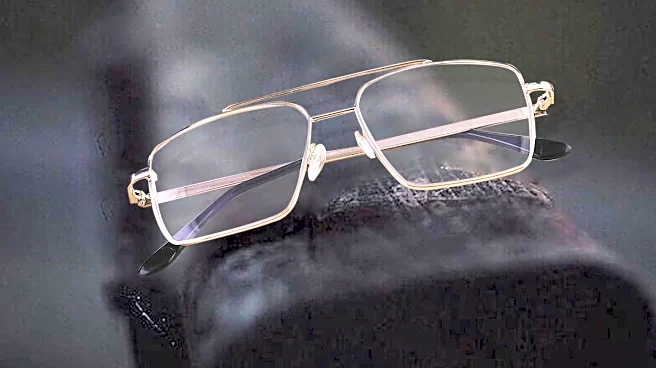What's Happening?
Yosef 'Zhu Zhu' Rabia, a father who lost two sons during the tragic events of October 7, has dedicated himself to creating memorial frames for hundreds of victims. His sons, Yuval and Noam, were killed along with Yuval's fiancée, Noy Zafraani, after fleeing the Nova Music Festival. Zhu Zhu, who immigrated from Cairo and resides near the Gaza border, has been tirelessly working to honor the memory of those lost. Despite the grief, he finds solace in his work, building frames for each victim's photo and installing them at the Re’im memorial site. The memorial has grown to include 417 names, each with a portrait, and has become a place of both sadness and joy, celebrating the lives of those who were lost.
Why It's Important?
The memorial frames serve as a poignant reminder of the lives lost during the tragic events of October 7. Zhu Zhu's efforts highlight the resilience and dedication of individuals in the face of personal loss and tragedy. This initiative not only provides a space for mourning but also fosters a sense of community and remembrance among those affected. The memorial site has become a symbol of unity, visited by thousands, and represents the diverse fabric of Israeli society. Zhu Zhu's work underscores the importance of preserving memories and honoring victims, offering comfort to grieving families and ensuring that the victims are not forgotten.
What's Next?
The memorial site continues to evolve, with contributions from various individuals, including artist Amir Khodorov, who has taken responsibility for its upkeep. The site attracts nearly 2 million visitors annually, serving as a place of reflection and remembrance. As the memorial grows, it may inspire further initiatives to support families affected by the tragedy and promote healing within the community. Zhu Zhu's ongoing dedication to the memorial frames suggests that the site will continue to be a focal point for honoring the victims and fostering solidarity among visitors.
Beyond the Headlines
The creation of the memorial frames raises broader questions about how societies cope with collective trauma and the role of personal initiatives in public remembrance. Zhu Zhu's work exemplifies the power of individual action in addressing grief and loss, highlighting the therapeutic potential of creative expression. The memorial site also reflects cultural and ethical dimensions, as it becomes a space for diverse groups to come together and remember the victims. This initiative may influence future memorial practices and encourage similar efforts in other communities facing tragedy.











